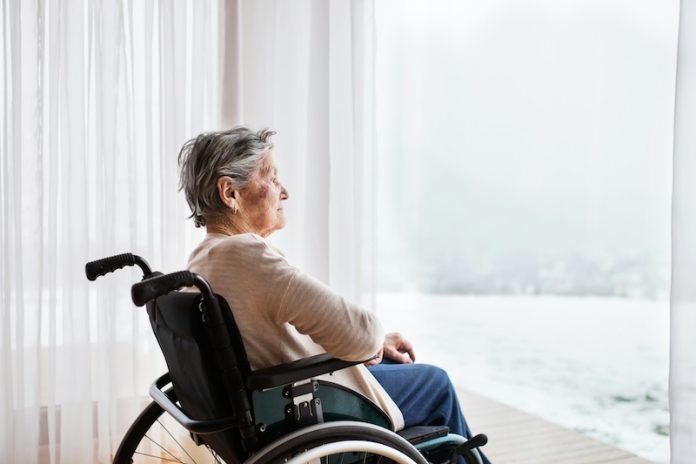
Social isolation presents a significant health risk, comparable to smoking 15 cigarettes a day, especially for older adults.
Thomas Cudjoe, MD, MPH, an assistant professor at Johns Hopkins School of Medicine, highlights the serious effects of isolation which include increased mortality risk, cognitive decline, and negative cardiovascular outcomes.
Approximately 1 in 4 individuals over 65 in the U.S. experience social isolation, impacting millions and resulting in substantial healthcare costs, including an estimated $6.7 billion annually by Medicare.
This problem has been exacerbated by the COVID-19 pandemic, although it has been a longstanding issue among older Americans.
As people age, it becomes easier to lose touch with friends and family, and physical impairments such as disabilities can make social engagement even more challenging.
Hearing loss, which affects two-thirds of older adults, significantly contributes to social withdrawal.
Alison Huang, Ph.D., MPH, a senior research associate in Epidemiology, found in a 2024 study that hearing loss is linked to a 28% increased risk of social isolation over time.
This condition not only makes it hard to communicate but also lessens the enjoyment of social activities, leading to greater isolation.
Poverty also plays a critical role in limiting social connections, with lower-income individuals often facing greater challenges in maintaining social ties compared to their higher-income counterparts.
The subjective feeling of loneliness and the objective situation of social isolation both have detrimental effects on health and longevity, including reduced access to healthcare services.
Cynthia Boyd, MD, MPH, points out the difficulties isolated individuals face, such as keeping up with medications or accessing transportation for healthcare needs.
Loneliness itself poses a significant health risk. A 2018 study involving heart failure patients showed that those who felt lonely had a threefold greater risk of death and a 68% higher risk of hospitalization compared to those who felt less lonely.
Furthermore, social isolation has been linked to an increased risk of mental health issues like depression, anxiety, and cognitive decline.
A concerning finding from a 2022 study by Cudjoe and his colleagues was that socially isolated elderly Americans have a nearly 30% greater risk of developing dementia.
This creates a vicious cycle where cognitive impairments make it even harder to maintain social connections, potentially accelerating cognitive decline.
Efforts to mitigate isolation include interventions like using hearing aids, which are currently underused among the hearing-impaired. Only 10% to 20% of those who could benefit from hearing aids actually use them.
Huang is leading a clinical trial to determine if treating hearing impairment can help preserve cognitive health in older adults.
Additionally, designing quieter, more accommodating social environments can help those with hearing loss engage more fully in social interactions.
Social prescriptions, where clinicians connect individuals to group activities or help coordinate regular interactions, offer another potential solution.
However, data on the effectiveness of these prescriptions is limited, and their success depends on carefully tailored approaches that consider individual needs and preferences.
As Cudjoe emphasizes, addressing isolation and loneliness in the elderly should not be a one-size-fits-all approach. It requires a holistic strategy that respects individual preferences and fosters environments that enhance social connections.
Education for both healthcare providers and the public on the importance of social connectivity is crucial for improving the quality of life among older adults.
If you care about health, please read studies that scientists find a core feature of depression and this metal in the brain strongly linked to depression.
For more information about health, please see recent studies about drug for mental health that may harm the brain, and results showing this therapy more effective than ketamine in treating severe depression.
Copyright © 2024 Knowridge Science Report. All rights reserved.




